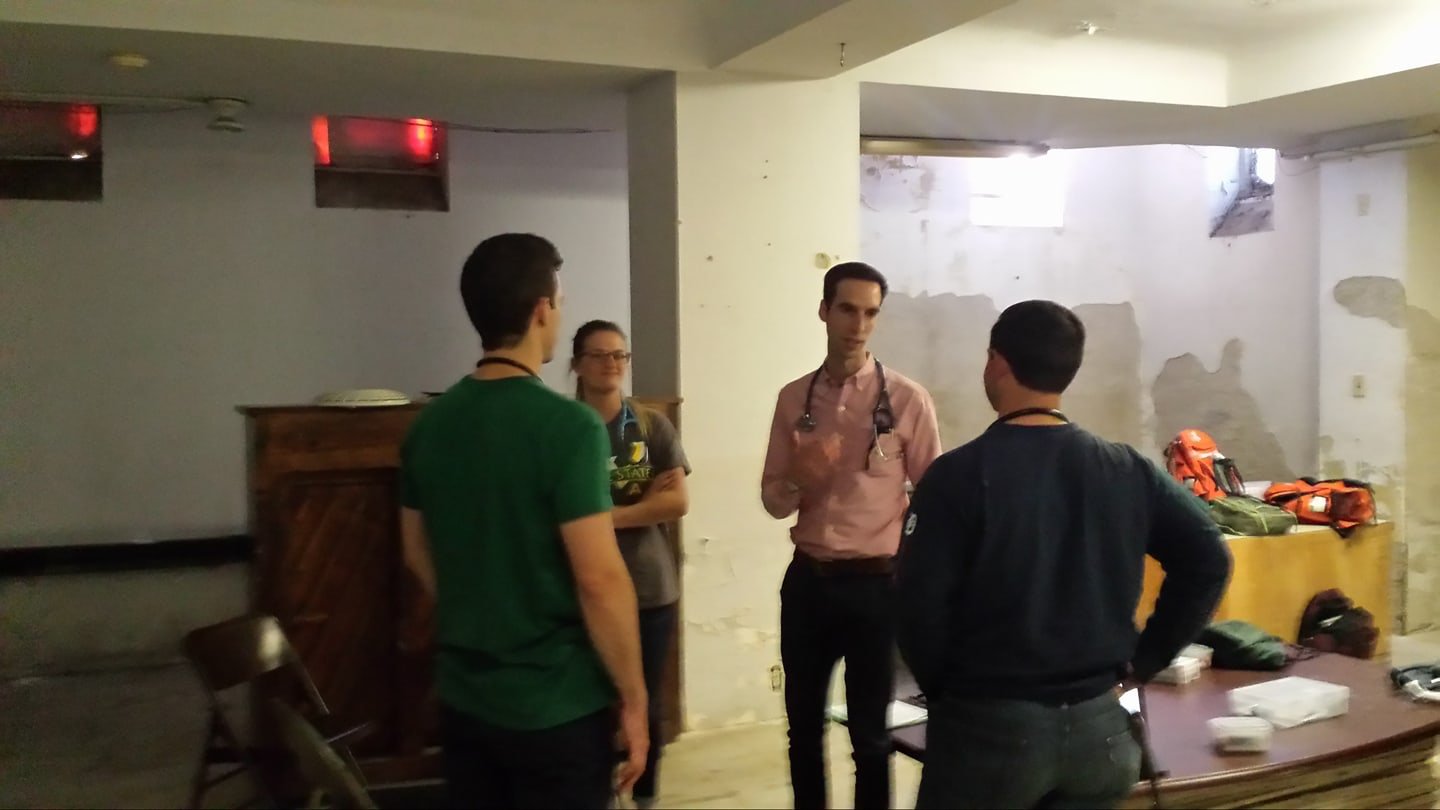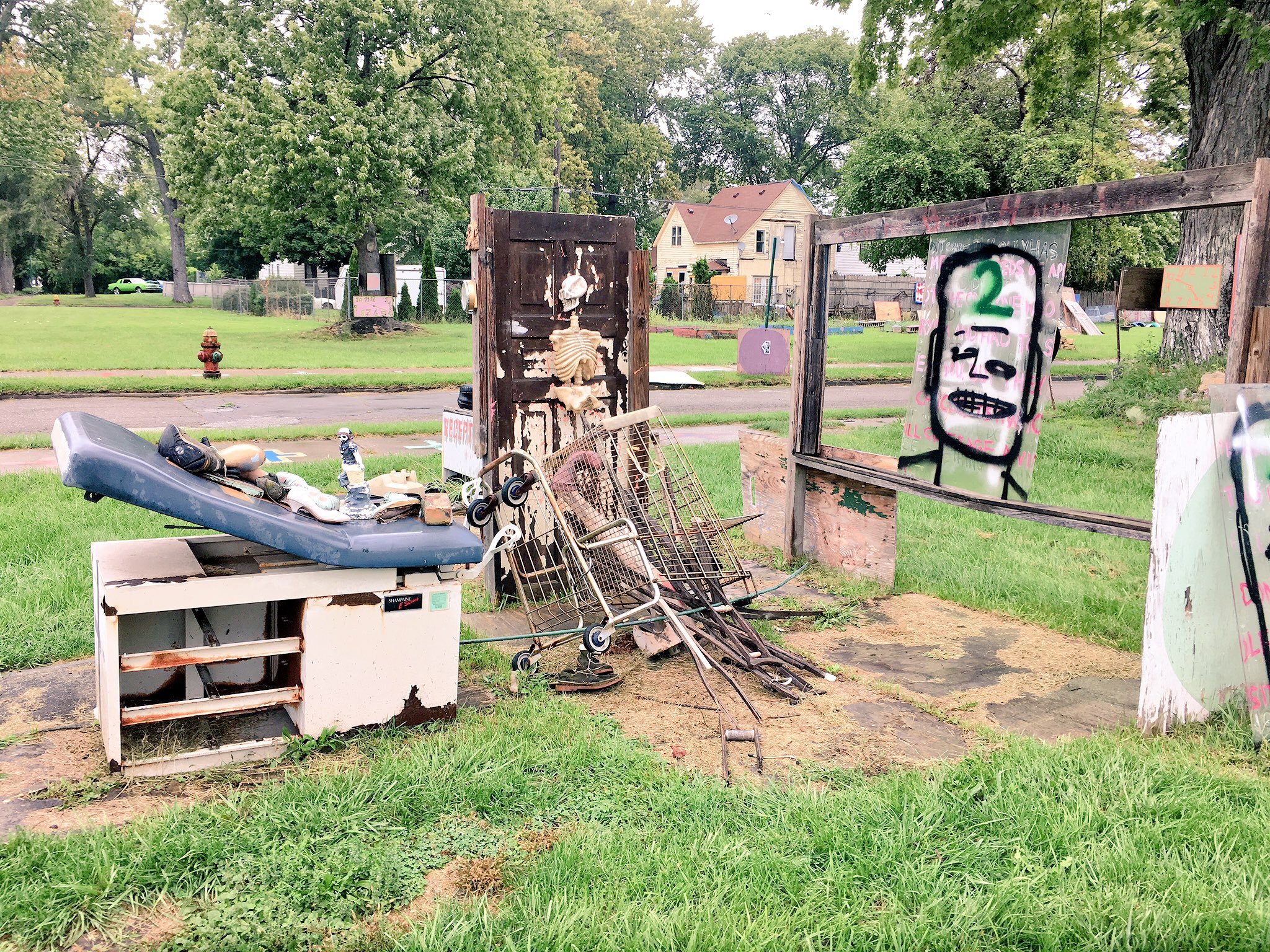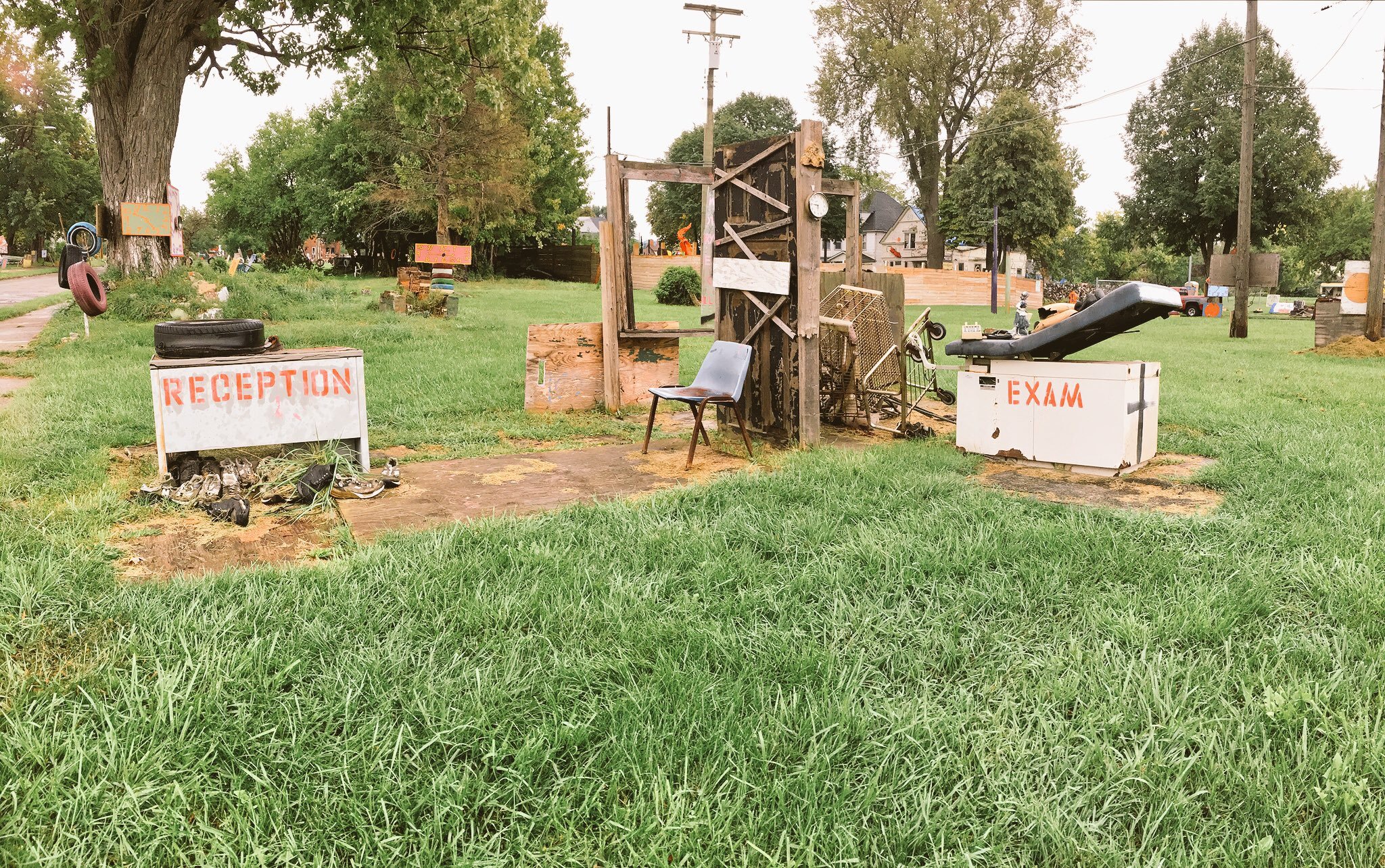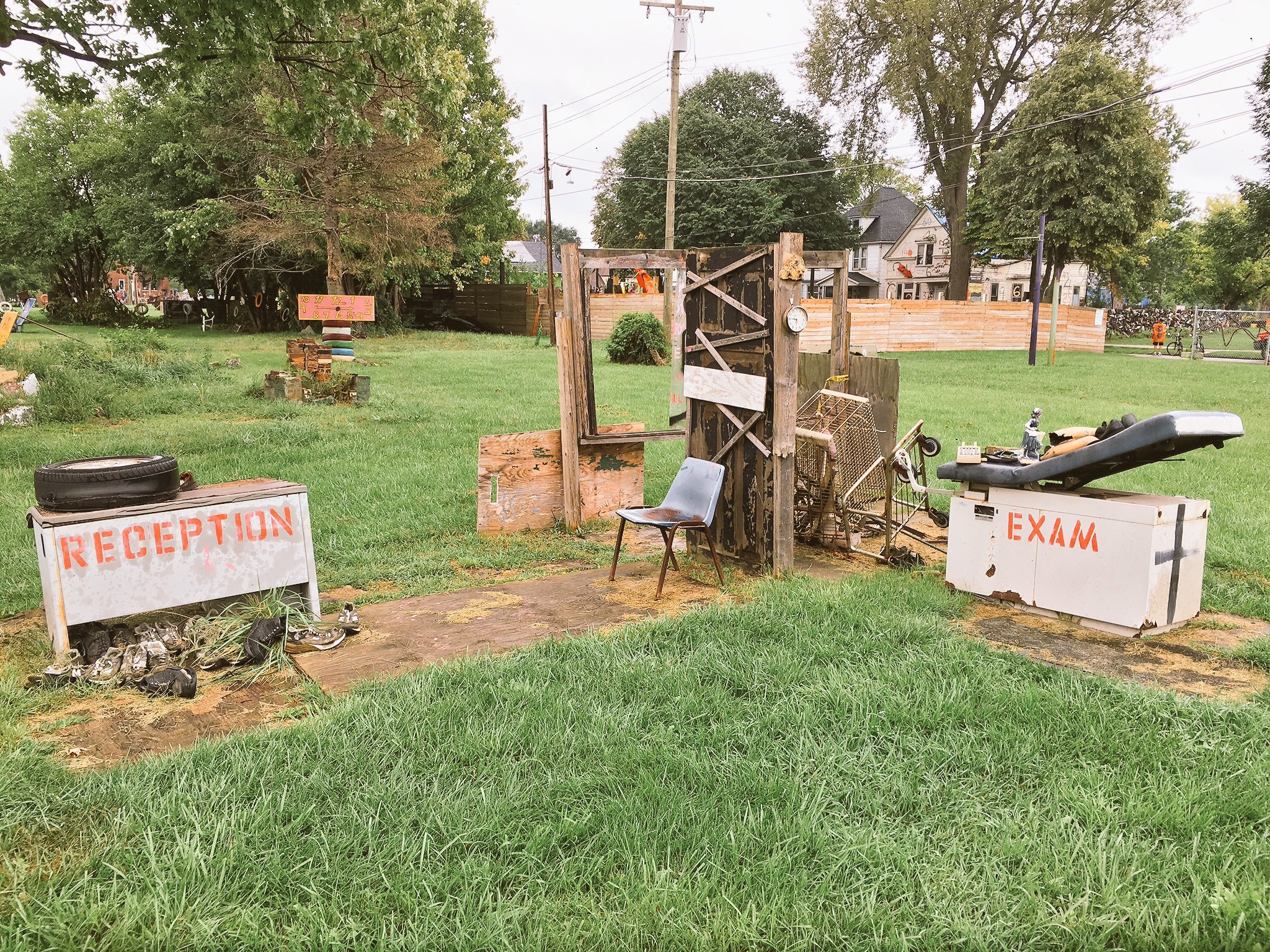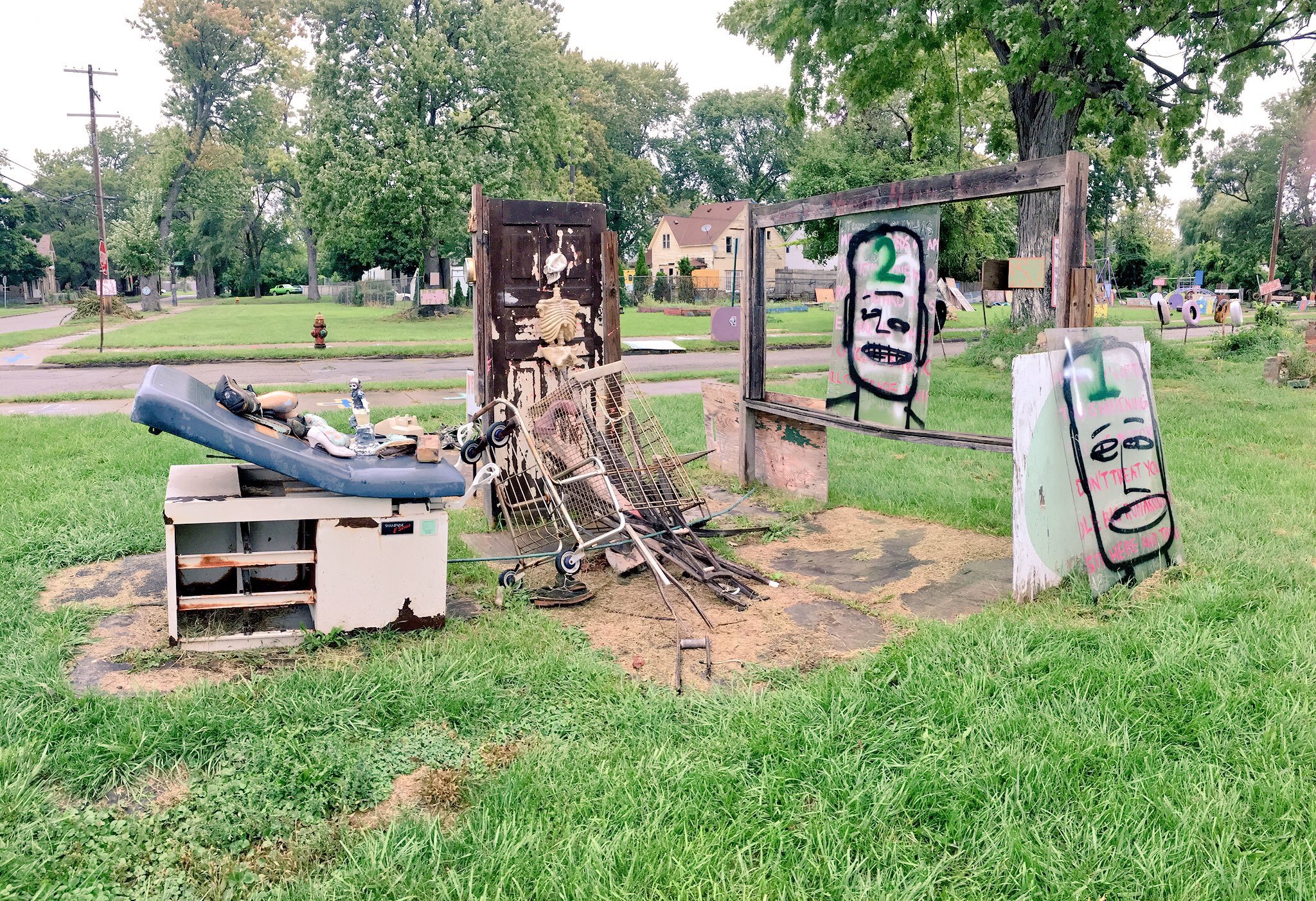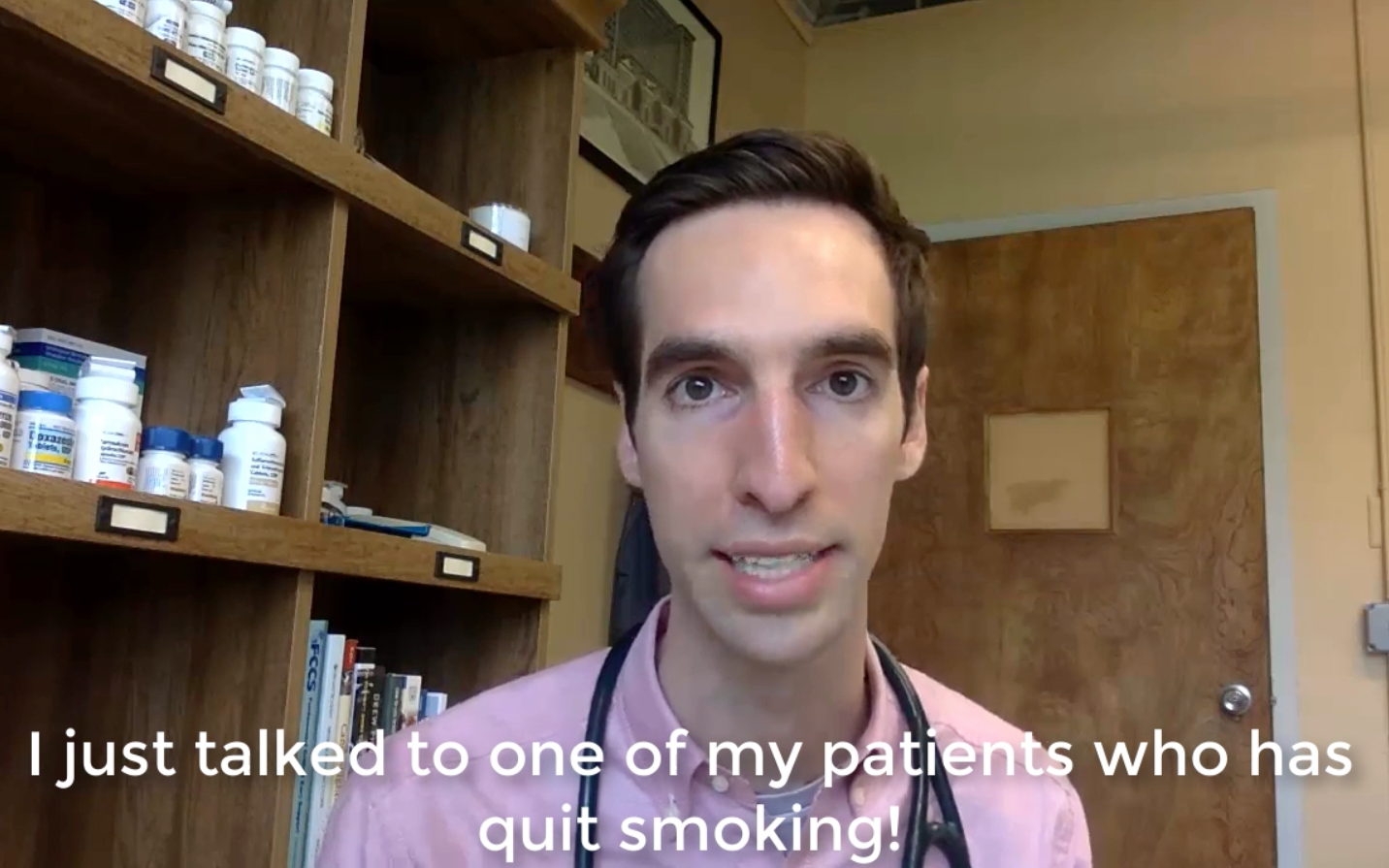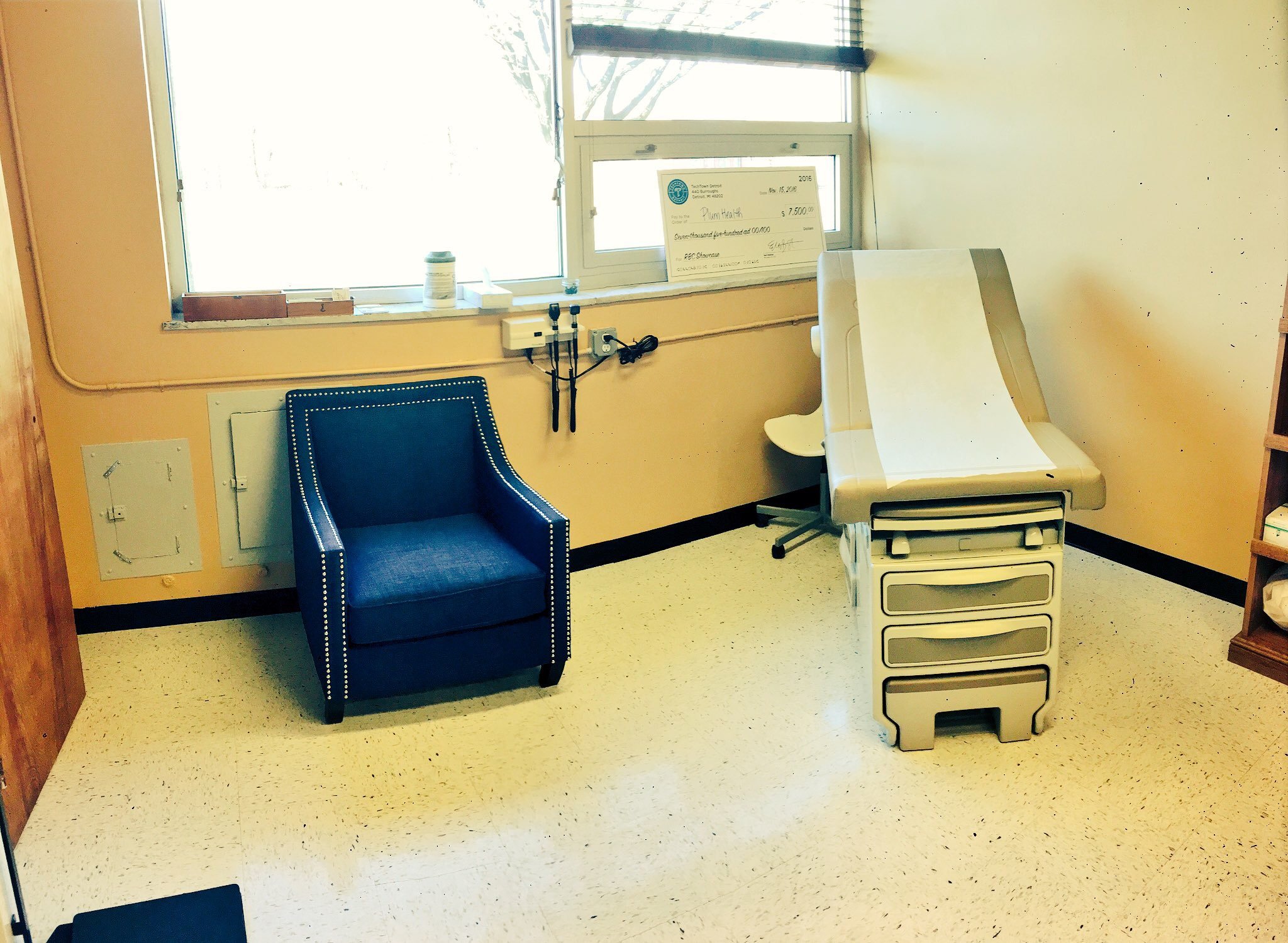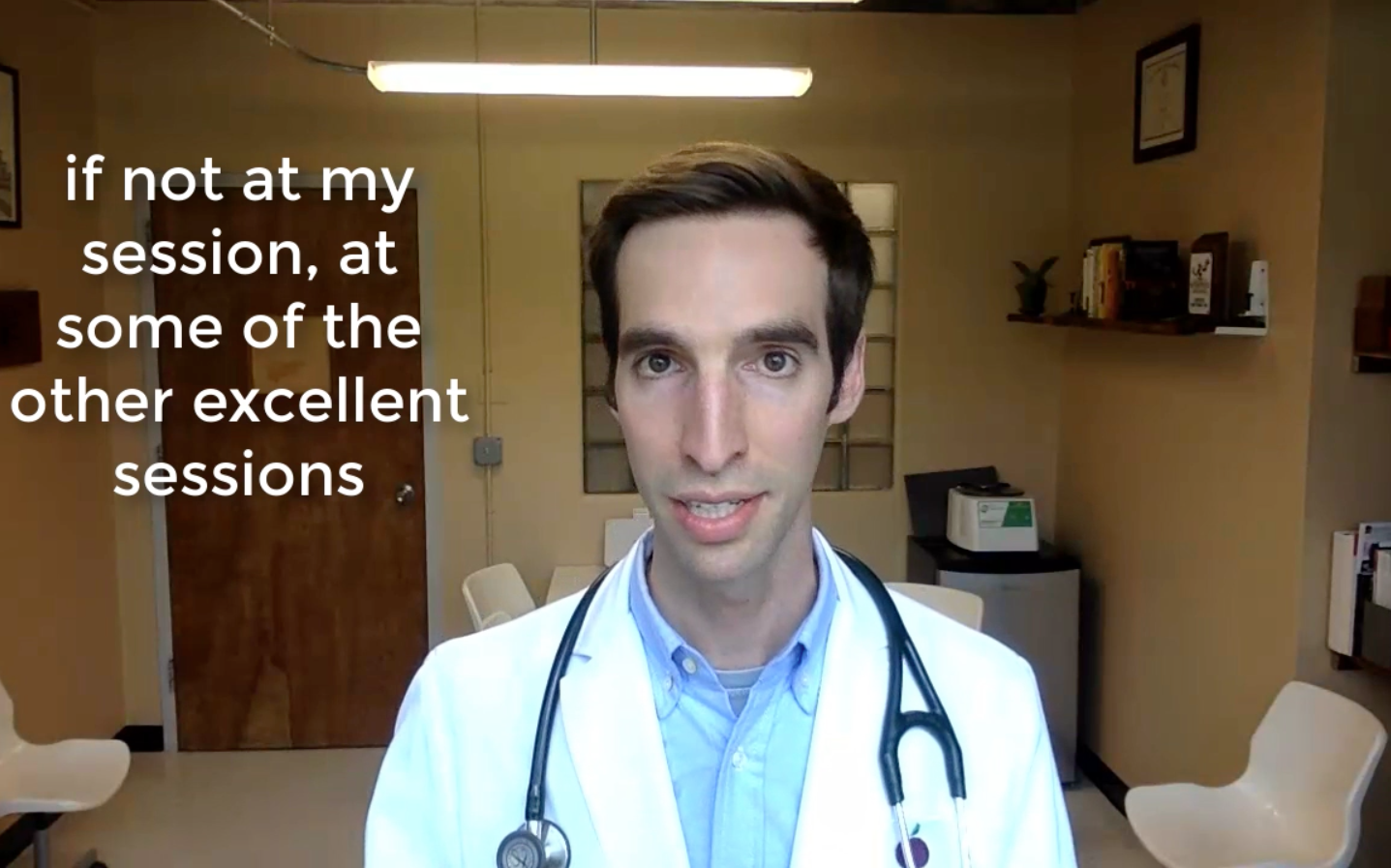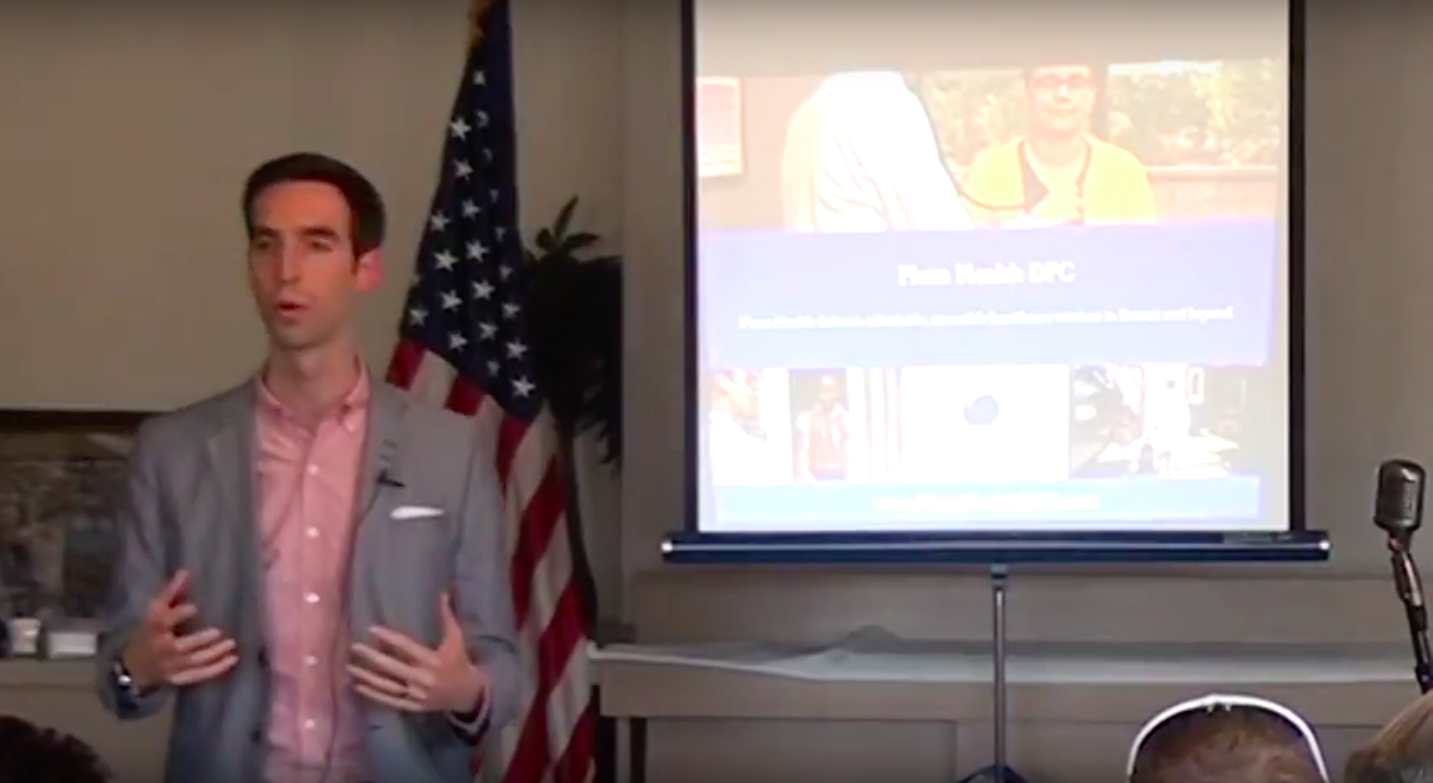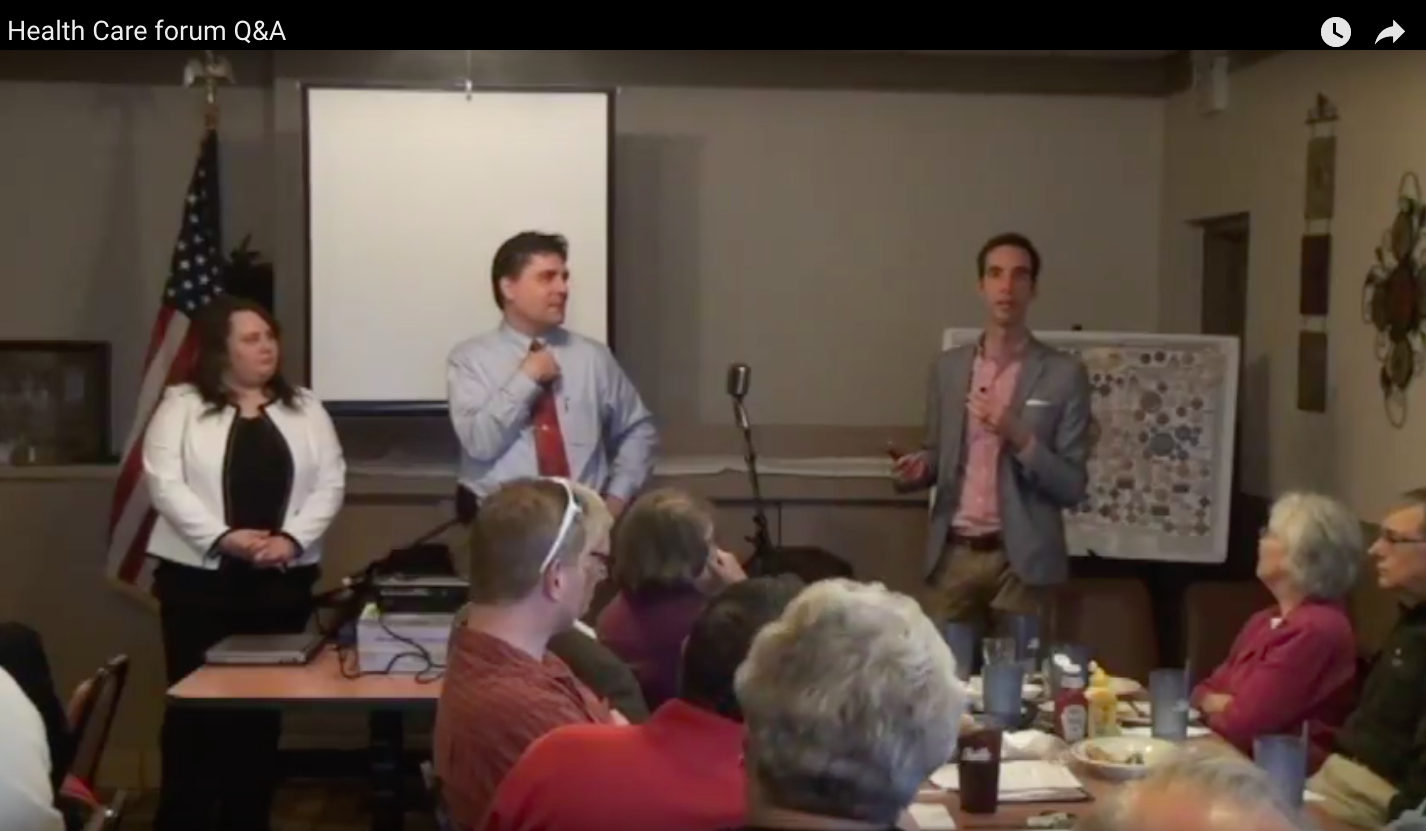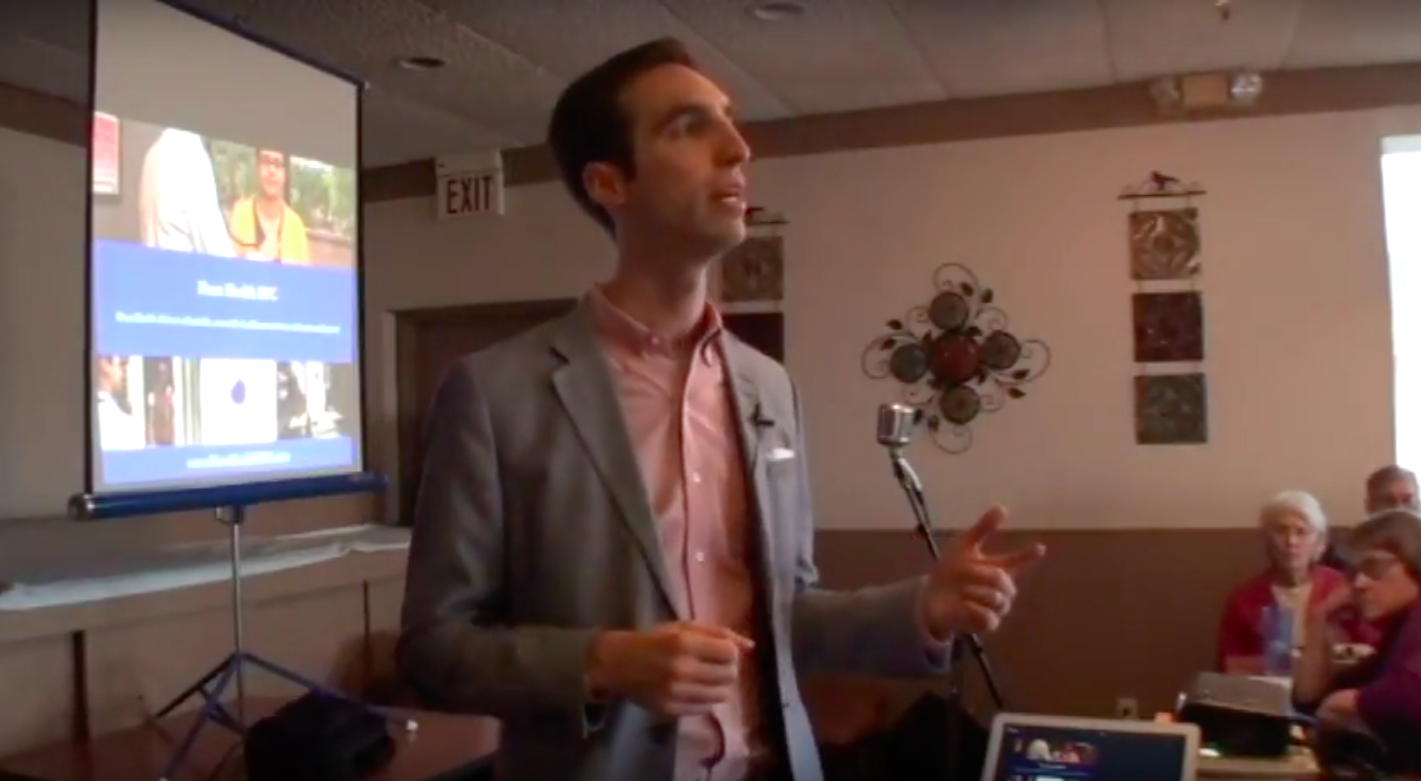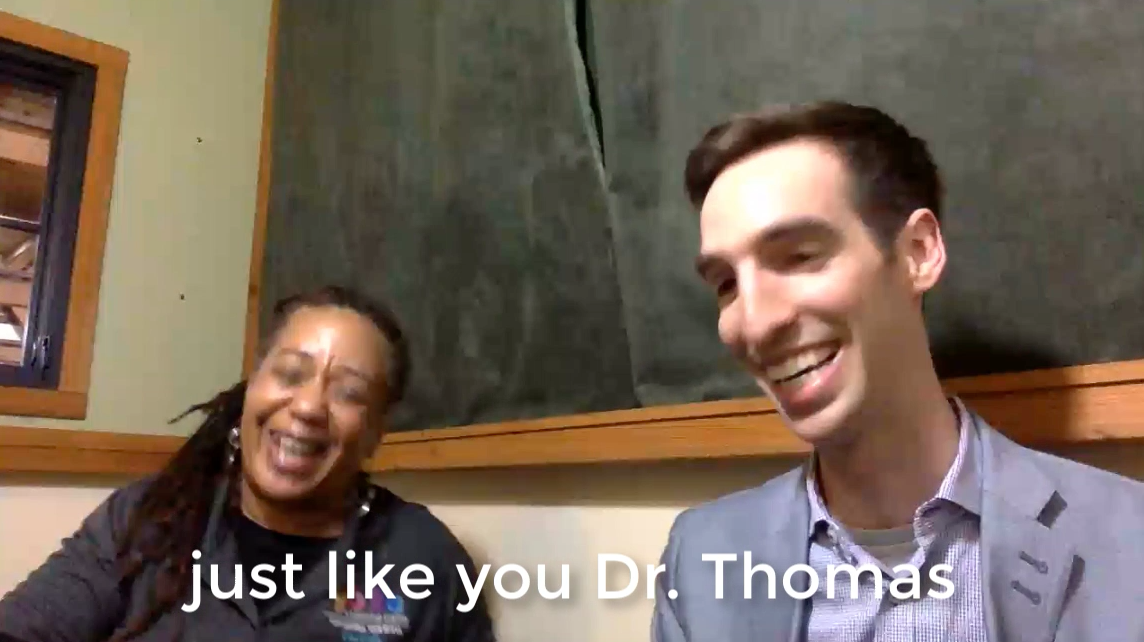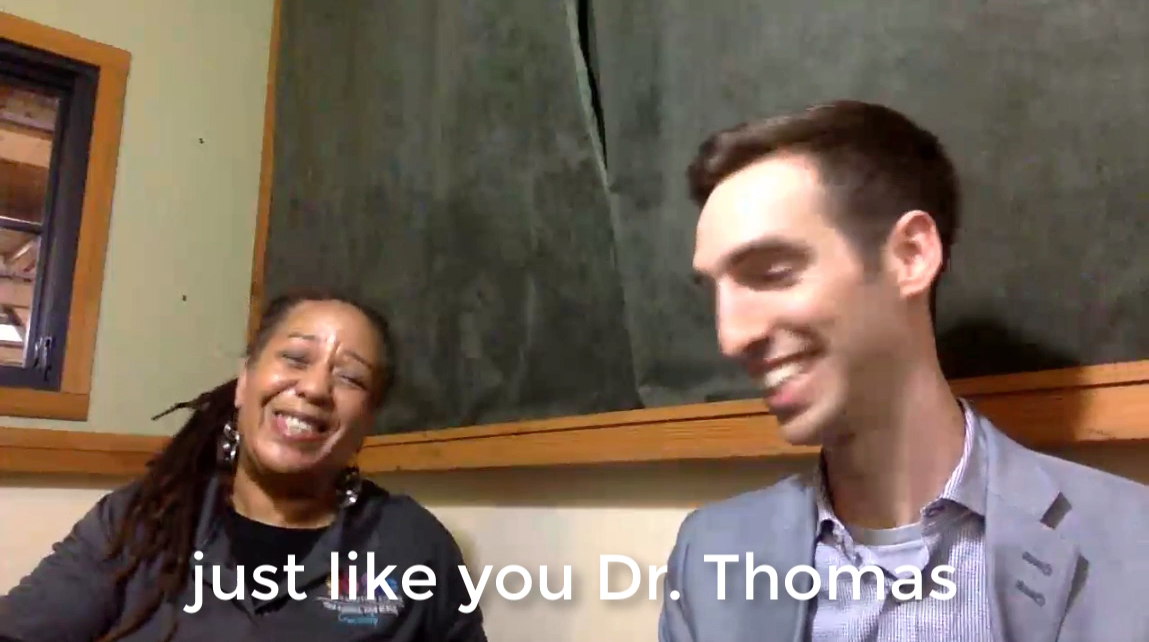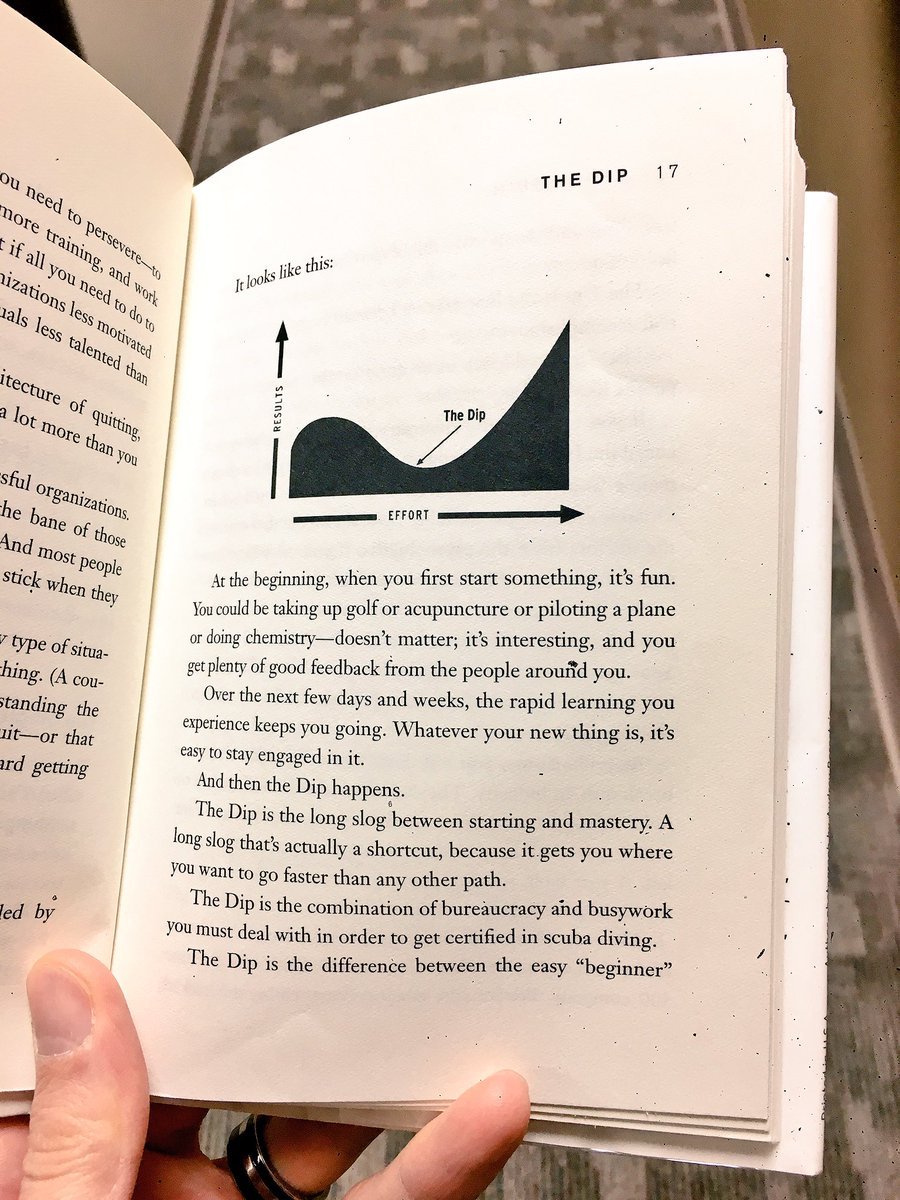Plum Health Blog
Plum Health featured in Good Life Detroit
This week, Plum Health DPC was featured on the blog Good Life Detroit. Jennifer is the creative spirit behind Good Life Detroit, and she did a fantastic job writing about our clinic and Direct Primary Care in general.
I really appreciated her perspective as a mother - she notes in the article that she has 5 children! - and that she paid $125 for a 20 minute doctor's visit for one of her children. Contrast that with our clinic, her child could have been seen for a full year for $120, with as many visits as needed included in that price.
This is how we make our primary care services valuable for the community that we serve. If you were not aware, Detroit is a large, low-income population. We recognize this as a fact, and have adjusted our pricing to be accommodating for the community that we serve.
Another great point that she brought up in the article is the frustration that people can experience when trying to reach their doctor! Sometimes reaching the doctor can be like pulling teeth. She puts it more eloquently, here:
"Another great benefit of Plum Health Direct Primary Care is patients have the opportunity to speak directly to Dr. Paul without the hassle of long wait times and call screenings. Instead of having to go through a series of steps just to talk to their doctor, patients can call, text, or email Dr. Paul directly. In some cases, some doctors require you to leave a message with the office staff for a callback.
"Most of the time the office staff member screen’s the doctor’s calls and you have to tell the staff member exactly what it is you need or what your question is. Then you wait for the doctor to call you back, which can be anywhere from the same day or one to two days later, all depending on the doctor’s schedule.
"Members of Plum Health have Dr. Paul’s cell phone number and email address. They can reach him anytime they need to ask a question in regards to their health."
There are several other great points that she makes throughout the article. I was really impressed at her depth and thoroughness. I also appreciate her helping to get the word out about affordable, accessible health care in #Detroit. We're trying to serve as many folks who need this type of care, and articles like these help us to reach communities outside of our circle of influence.
Thanks for reading and have a wonderful day,
Dr. Paul Thomas with Plum Health Direct Primary Care
Plum Health Direct Primary Care is in Detroit, Michigan. We practice old-fashioned family medicine, but we use technology to make ourselves more accessible to our patients when they need us! I love this graphic that Jennifer at Good Life Detroit created for us!
I also really liked this graphic that Good Life Detroit made about our pricing tiers at Plum Health DPC - really easy to read and understand!
Street Medicine Detroit
This month I had the opportunity to volunteer with Street Medicine Detroit, an organization dedicated to helping homeless people in Detroit with their medical care. This was an organization that I volunteered with and supported during its early days at Wayne State University School of Medicine.
The service is run by WSU medical student volunteers and they go out to different locations across Detroit and assist those who need medical care. This can be done on street corners, in soup kitchens, homeless shelters, and churches across the city.
This month, I met up with the volunteering students at Manna Community Meal to deliver health care services. This is in the basement of St. Peter's Episcopal Church in Detroit's Corktown neighborhood. It was a great way to give back, and if you want to support Street Medicine, they take donations at their website, here.
Talking with a group of medical students while volunteering with Street Medicine Detroit at St. Peter's Episcopal Church in the Corktown Neighborhood of Detroit, Michigan.
How many calories should I eat each day?
How many calories should I eat each day? This is a question that my patients commonly ask of me and there is not a one-size-fits all answer. There are several steps to finding the appropriate calorie intake on a daily basis. One of those steps is calculating your basal metabolic rate.
Once you know your basal metabolic rate, you can add in the amount of calories that you burn each day from exercising. If you jog for 30 minutes each day, you may burn about 200 calories. If you do yoga for 30 minutes each day, you can burn around 150 calories.
Take the number of calories burned in the day and add that to your basal metabolic rate. If you have a reasonably stable weight, you can estimate that you are taking in about that calorie total in your diet.
Then you have to consider your weight goals. Are you trying to lose weight or gain weight? If you seek weight loss, then removing 100 - 200 calories from your diet each day may be a safe number for you to achieve your goals. Remember, in general, it is unsafe to lose more than 1 - 2 pounds each month.
Using an app like MyFitnessPal can be really helpful, especially if you are meticulous about documenting the foods that you consume and workouts that you perform each day. If you're a patient with Plum Health, I will review your data in the App and then we can make better decisions about dietary changes and exercise regimens.
In general, my opinion is more about eating healthier foods, not necessarily less food. I recommend eating foods discussed in "The End of Dieting", found on Amazon here: http://amzn.to/2snb78z
In it, Dr. Fuhrman recommends eating GBOMS, Greens, Beans, Onions, Mushrooms Seeds and Nuts. The point is to get more nutrients/calorie and he sums it up this way: Health = Nutrients/Calorie. The more nutrients per calorie, the better your health.
Kale, Bok Choy, Quinoa, Blueberries, Almonds, Walnuts, Wild Caught Salmon are a handful of examples of highly nutrient dense foods! This would be in contrast to Iceberg Lettuce, bananas, peanuts, and ground beef - these foods are less nutrient dense then the aforementioned foods.
Making healthier food choices, especially those foods that are nutrient dense, can help you to be healthier. Further, if you make organic selections, you will have less toxins in your body. Physician and author Dr. Mike Dow discusses the importance of eating organic foods in his book The Brain Fog Fix.
I hope that this is a helpful and comprehensive answer for you! Thanks for reading, and have a wonderful day,
- Dr. Paul Thomas with Plum Health Direct Primary Care in Detroit, Michigan
Plum Health Advocating for Direct Primary Care in Washington DC
This week we're in Washington DC, advocating for affordable, accessible healthcare services on Capitol Hill. We're meeting with the offices of Senator Stabenow, Senator Peters, Congresswoman Lawrence, and Congressman Conyers. This is one of those moments where I feel like the mission that I'm on is bigger than the community that I live in and bigger than my city and my state. Access to affordable health care is a National concern and our representatives and their office personnel have given us open ears.
On Thursday morning, I boarded a plane to DC. That day, I met up with several of my Direct Primary Care colleagues at the DPC Summit 2017. We took a bus from our hotel in Crystal City to the Dirksen Building on Capitol Hill. We received instructions from our advisors about how to talk to our legislators: be authentic and tell your story.
Here's the video I shot in the Detroit Metro Airport prior to taking off:
After our briefing, I was able to meet up with legislative assistants from the offices of Senator Stabenow, Senator Peters, Congressman Conyers, and Congresswoman Lawrence. Here's a video I shot inside the atrium of the Hart Senate Office Building:
The Hart Senate Office Building houses the offices of Senator Peters and Senator Stabenow. I was bouncing between this building and the Rayburn House Office Building, where Congresswoman Lawrence and Congressman Conyers have their offices. Here's a video I shot just outside of the Rayburn House Office Building:
Thanks for reading and watching, and have a great day,
- Dr. Paul Thomas with Plum Health DPC in Detroit, Michigan
Local Detroit Doctor on Channel 4 News WDIV
This week, Plum Health Direct Primary Care was featured on Channel 4 News, station WDIV, in Detroit, Michigan. Plum Health was billed as a service that is saving people "thousands of dollars". While we are able to save folks money on their health care needs, the reason why we do this goes much deeper.
Our mission is to provide affordable, accessible health care in Detroit and beyond. We build relationships with our members and make ourselves available whenever our patients are in need. We make the prices for all of our services transparent so that you can understand both the cost and the value. Here's what WDIV wrote on their webpage:
DETROIT - Dr. Paul Thomas, who runs the Plum Health Clinic in Detroit, might just have a plan to revolutionize healthcare -- it's called Direct Care.
Thomas said everyone needs health insurance in case of catastrophic illness or injury, but he quickly added, "Basic healthcare outside a hospital is actually low cost."
When was the last time "low cost" and "healthcare" showed up in the same sentence?
A hospital test for cholesterol can cost $120; Thomas charges $6.50. A month's supply of Prilosec costs about $17 at the pharmacy, Thomas' clinic members pay 96 cents for the same prescription.
"The more money the insurance companies touch, the more that sticks to their hands," Thomas said.
Thomas argues that Direct Care removes the profit-takers between your dollars and your doctor, and makes affordable healthcare a reality.
I am deeply grateful for the coverage, and am deeply grateful to be a physician taking care of people's medical needs. Please let me know how I can be of service to you, and thank you for reading and watching.
- Dr. Paul Thomas with Plum Health Direct Primary Care
Primary Care Clinic in Detroit
When I was a first year medical student, I worked with a group of my fellow medical students to build an outdoor medical clinic. We wanted to raise awareness about the lack of primary care services in Detroit, and we accomplished this by constructing an outdoor medical clinic.
Currently, there are roughly 50 - 100 primary care doctors in the City of Detroit. This equates to about 1 primary care doctor for every 6,000 - 12,000 residents, which is horribly underserved. In the future, I would like to see 1 primary care doctor in every single Detroit Neighborhood, from East English Village to Ford/Wyoming, from Old Redford to Lafayette Park.
Having community primary care doctors creates a tremendous amount of value for the surrounding neighborhood - that doctor becomes a go-to person for folks who need health care and even emotional support.
However, the current reality in Detroit is that folks either don't have access to a primary care doctor or are driving to the suburbs for their care. To illustrate that lack of primary care services, our group of medical students built an outdoor clinic as a part of the Heidelberg Project on Detroit's East Side or what you may call the McDougall Hunt Neighborhood. Of course, we had the approval of Tyree Guyton, who checked in on our work that day, and we also received some press from the Detroit Free Press and the Wooster Collective out of NYC.
It was a simple clinic, with a reception desk, a door frame, a door, an exam table, and some chairs. On the door, we wrote all of the barriers to accessing health care services in Detroit and in the Nation. This was in 2009, when the debate over the Affordable Care Act was raging.
I visit the location periodically, to see how it has changed over the years. The last time I visited the site was in September 2016 during the Tour de Troit, an annual bicycling event that takes riders around the city. Someone had added a skeleton and some body parts, and it looks like Tyree made his signature drawings of faces on our plexiglass wall.
Plum Health may be in its infancy, but I know that we are already filling a need in the community in terms of primary care services. We recently surpassed 100 members and continue to grow, adding new members each week. We've taken care of newborns, toddlers, teens, and adults, and have addressed conditions ranging from sore throats to cancer.
As I continue to serve in the community, I hope to live up to the ideals that I put forth in this work of public art, to be the kind of community doctor that addresses the lack of access to health care in Detroit. I will also work to inspire the next generation of Family Physicians to take the leap into private practice in a community-based setting.
Thanks for reading, and have a wonderful day,
Dr. Paul Thomas with Plum Health DPC
Medication Price Comparison in Detroit
As a part of our service, we do free consultations for folks struggling to pay for their medications. Medication pricing is a hot topic in the health care field and overall health system - we've all heard about drug companies raking in huge profits on drugs that used to cost just a few dollars.
I bring this up because real people in our community are struggling to pay for their blood pressure meds, diabetes meds, blood thinners, and other pharmaceutical products. Even worse, they are paying inflated prices through the "retail pharmacy" like CVS, Meijer Pharmacy, or Walgreens.
We give folks free consultations at Plum Health, and a big part of this is price checking their medications. Today, I had someone in the community reach out to me to ask for a price check on a whole list of medications that they take. Here's what we found:
DRUG LIST PLUM HEALTH Price/pill, Price/month Insurance price/month
Atenolol 25 mg $0.018/pill or $0.54/month $12.99/mo
Carbidopa/Levodopa 250/10 $0.096/pill or $2.88/month $47.80/mo
Finasteride 5mg $0.073/pill or $2.21/month $15.40/mo
Flomax 0.4 mg $0.11/pill or $3.40/month $62.75/mo
Metformin 1000 mg $0.0129/pill or $0.38/month $12.99/mo
Levothyroxine 50 mcg $0.27/pill $8.25/month $33.67/mo
Plavix 75 mg is $0.06/pill $1.92/month $12.99/mo
Brilinta 90 mg is $5.54/pill $166.20/month $999.35/mo
It's eye opening, even after doing this type of medical care for the last 8 months, to see these prices side by side. The left hand column has the drug name, the second column has the Plum Health price per pill, the third column has the Plum Health price per month, and the final column has the insurance-based price per month.
Again, this gets at the main principle: if you use a third party payment system to purchase things in the market place, the prices become inflated. However, if you buy things directly from vendors in the market place using your own money, costs tend to be less. We are able to get these low prices because we buy medication in bulk from whole sale medication suppliers.
If you have any questions about medication prices, please feel free to call us at 313.444.5630. We routinely save folks about 50 - 90% on their medication prices. In the example above, this is about how much this person will save.
Have a wonderful day,
Dr. Paul Thomas with Plum Health DPC
Opinion Published in the Detroit News
Our opinion regarding Health Insurance and Health Care was published in the Detroit News last night, and it is currently on the front of the Opinion Page!
Our opinion made the top of the page for the Detroit News Opinion section on June 5th 2017.
Here's our opinion in full:
Health insurance does not equal health care. As Americans, we often conflate these two entities. But they are in fact separate.
Health care is when you see your doctor. They listen to your story, empathize, perform a physical exam, make a diagnosis, and discuss treatment options. They can also order tests and give you medications. The compassion, the sincerity, the relationship — that’s health care. Health insurance is what covers you in the case of a medical catastrophe, like if you’re involved in an accident, have a heart attack or a stroke. Health insurance is a financial tool to prevent you from going bankrupt in case these catastrophic events occur.
These may seem like obvious statements, but we’ve grown accustomed to a system in which health insurance covers everything, from flu shots to ICU. This may not be a terrible thing; we all need flu shots, and some of us may end up needing ICU care. The problem exists in how we pay for these services.
If we continue to ask insurance companies like Blue Cross Blue Shield and government entities like Medicaid and Medicare to pay for all of our health care services, from blood pressure medications to cardiac bypass surgery, costs will continue to be inflated.
So if you’re paying $10 for your lisinopril each month, know that it actually costs $0.37. If you’ve paid $120 to check your cholesterol this year, know that it actually costs about $6.55. If you’ve ever paid $150 for a chest X-ray, it actually costs about $40. When we use our insurance cards to pay for the basic, routine health care services, prices are inflated. Fortunately, we now have a choice, an opportunity to use free market principles to save money on our health care services. More Direct Primary Care clinics are popping up in Michigan and across the nation.
Direct Primary Care doctors ask that patients pay a monthly membership, which allows them unlimited visits with their doctor and the ability to call, text or email the doctor any time. These doctors also provide wholesale medications, at-cost labs, and at-cost imaging services. By cutting out the middle man and asking consumers to pay for their basic services, the cost of these basic services decrease. Typical savings for medications, labs and imaging services range from 50 percent to 90 percent.
Ideally, people will pair DPC services with a health insurance plan that fits their needs and their budget, and covers them in case of a catastrophic event.
Paul Thomas, M.D., is a family doctor at Plum Health Direct Primary Care.
A screenshot from our Opinion in the Detroit News on June 5th, 2017.
Thank you for reading and have a wonderful day,
Dr. Paul Thomas with Plum Health Direct Primary Care in Detroit, Michigan
How to Quit Smoking in Detroit
The adult smoking rate in Michigan is 20.5%. So, of the Michiganders over the age of 18, roughly 1 in 5 are smokers and that translates to 1,557,000 smokers in the State of Michigan. Among the United States, Michigan has the 9th highest smoking rate among adults.
This is unfortunate because there are many adverse effects of smoking, from increasing the risk of heart attacks and strokes to increases in the rates of head and neck cancers and lung cancers.
However, there are effective treatments that can help you quit smoking, and once you quit smoking many health benefits can be realized, from lowering your blood pressure to decreasing your risks of cancer.
This week, I've had a few people ask for help in terms of smoking cessation, and I am happy to provide that type of help. In fact helping people to quit smoking has some of the best patient-oriented evidence in medicine. Full stop.
Logistically, I would have you come in for an appointment. We would talk about where you are - pre-contemplation, contemplation, or ready to quit aka "quit mode". Then we'd review your medical history, current medications and any pertinent health-related issues. We would then formulate a treatment plan based on you as an individual.
In the person discussed in this video, we used Zyban or Wellbutrin or Bupropion (all different names for the same medication). This is effective in reducing the cravings that people feel for cigarettes. Then, we set a quit date. This is 1 week after starting the Zyban (bupropion).
After the quit date is reached, nicotine replacement therapy is used to tamp down hour-to-hour cravings. This can be in the form of a patch or gum or lozenges. Again, we personalize the method based on your preferences.
Let me know if you'd like to start your journey to better health with Plum Health, you know that you can reach me through our contact page or by phone, 313.444.5630.
Sincerely,
Dr. Paul Thomas with Plum Health DPC
Direct Primary Care Doctors Have More Time
Have you ever had this experience: a doctor tells you that you have condition "X" with treatment "Y", they then proceed to leave the room. A few moments later, the medical assistant hands you a pamphlet explaining condition "X" and treatment "Y", saying "thank you so much and have a great day"?
Questions start to pop in your head - do they know that I've already tried medication "Z"? What are the common side effects of treatment "Y"? Perhaps you've then asked the medical assistant, who then tries to pull the doctor out of the next patient's room.
This can be extremely frustrating, and for good reason. When you see the doctor, you want to have a plan. Further, you want to understand this plan, the side effects of treatment, the potential costs involved, and other options if this option fails.
Direct Primary Care doctors have more time to spend with their patients. We use this time to explain treatment plans, from why we chose a specific medication to what you should expect and when it's time to make that referral.
As an aside, I was discussing this with some of my Direct Primary Care doctor colleagues: should we be sending information to our patients via digestible video segments?
My answer is as follows:
Should Direct Primary Care Doctors make videos for their patients? In short, maybe. If you are consistently repeating information for your patients, it might be a good idea for you to make a short "explainer" video. For example, the difference between strep throat and a viral sore throat or a preferred diet method, or what to do in the case of a tick bite.
If you are seeing common ailments, it may make sense to make videos explaining the symptoms, but you became a Direct Primary Care Doctor for a reason! You wanted to have more time to discuss issues with your patients, more time to explain why you are using that medication or why you are pursuing that course of action.
It would make more sense to make videos for a larger health system. If the videos are really high quality, the doctors who have less time to explain themselves can use them to give patients the information that they would want to convey themselves, but don't have enough time to convey.
Thanks so much for reading, and have a great day,
Dr. Paul Thomas with Plum Health Direct Primary Care
Detroit Startup Week 2017
Detroit Startup Week 2017 will begin on Monday May 22nd!!! It's going to be a great week of stories, panels, and information sessions about starting businesses, large and small. It will also provide entrepreneurs with an opportunity to network and learn from eachother.
This year, I was selected to give a presentation about starting a business in one of Detroit's neighborhoods, Southwest Detroit. I'll be sharing some of my experiences and I hope you can come out to the session, the link is here.
From their press release: "Startup businesses of every type and stage are invited to over 100 completely free events that are designed to support startup growth and build a stronger business ecosystem in Detroit."
In the session, I will be talking about how we started Plum Health, some of the mistakes that we've made, some of the experiences that we've had, and some of the support systems in Detroit that has allowed us to be successful.
If you're contemplating starting a neighborhood professional service in the City of Detroit or elsewhere, I hope that my session will be extremely helpful for you.
Thanks so much for reading, and I look forward to seeing you at the Masonic Temple next week!
- Dr. Paul Thomas with Plum Health Direct Primary Care
WeWork Creator Awards Detroit Application
Today, we submitted our application for the WeWork Creator Awards! I really enjoy submitting applications for contests like this, because it helps me to clarify our mission, vision and values. And it's an opportunity to learn and grow through outside feedback about our internal operations.
In the application, they ask: "What problem is your idea, business, or organization solving?" For us at Plum Health, it's all about providing high-quality Family Medicine services in the community. It ain't sexy and it ain't super exciting, but it's so darn necessary! Having excelling primary care services in your neighborhood saves costs and improves health outcomes.
As they put it in this linked article, "One primary care doctor per 10,000 people in the U.S. can decrease hospital admissions by 5.5 percent, emergency room visits by 11 percent and surgeries by 7 percent."
This point is salient in Detroit, where there is an epic primary care shortage. Currently, there are only 50 - 100 primary care doctors in the City of Detroit for 680,000 people. That's 1 doctor for every 6,000 - 12,000 people. I recently wrote an article about this in the Detroit News.
Historically, this has been a difficult issue to solve because practice location for doctors is often tied to reimbursement from the community. Primary care doctors have avoided Detroit because more than half of Detroiters are on Medicaid, which generates low reimbursements.
With Plum Health, we do not rely on government or third party payers of reimbursement. Instead, we bill patients directly: $10/month for children and $49 for young adults, which covers all doctor's visits, texts, phone calls, and emails.
Additionally, members also have access to wholesale medications, at-cost lab work, and at-cost imaging services. From January - May 2017, we have saved our members roughly $15,000 on their meds, labs, and imaging. We are here to provide a tremendous amount of value to our patients and our community.
Our ask for the WeWork Creator Awards: help us reach our goal of providing value for the community by supporting what we do at Plum Health DPC!
The WeWork application continued with the following question: "How do you, your business, or your organization interact with the community?" Put simply - we are imbedded within the community and provide ours services to community members.
At Plum Health DPC, we take care of folks of all ages, races, ethnicities, and orientations. We are practicing on the street level, open and accessible to the community. Our youngest member is 14 months old, our oldest is 63 years; some of our members earn less than $30,000 and cannot otherwise afford health care. These folks are often shut out of the traditional insurance system because they cannot afford the premiums.
In addition to serving our paying customers in the community, I regularly volunteers at Cass Community Social Services' Clinic in Cass Corridor and the Student Run Free Clinic at I-94 and Conner. Here, I'm able to deliver free care to the most vulnerable members of the community - typically the homeless and uninsured.
Finally, Plum Health is regularly at health fairs throughout Detroit, performing free health screenings for non-profit organizations and church groups.
The last major questioned asked in the application was about how we would use the money if we won: "If you were awarded a grant, what new benchmarks would you be able to reach?" We are doing pretty well at Plum Health, adding new members each month and growing at a sustainable pace. However, if we won the Creator Award, we would be able to grow more quickly and therefore serve more people in Detroit and beyond.
Specifically, A grant of $18,000 - $36,000 would allow us to lease a larger office space and hire a second doctor. In a city with such limited primary care options, hiring a second doctor to work in the city would make a substantial difference in the lives of the people in our community.
We've taken care of folks who earn less than $30,000 and we've seen people who haven't been to a doctor in years, living in fear of generating large medical bills, and living with the consequences of their worsening high blood pressure and diabetes. Without the grant, the goal of leasing a larger office space and hiring a doctor would be at 6 - 12 months. With the grant, these goals would be achieved in 3 - 6 months.
Thanks so much for reading more about what we do at Plum Health DPC, and if you're a member of the WeWork community, thanks for taking the time to read our application and this blog post!
Sincerely,
- Dr. Paul with Plum Health DPC.
Travel Medicine in Detroit
It's that time of year where people start traveling! If you have travel plans for this summer or fall, let us help you at Plum Health DPC. We have helped several of our members get their vaccines at-cost, we deliver the vaccines in our office, and we save our traveling patients time and money.
We give our vaccines at-cost to save you money on your trip, from Hepatitis A, to Typhoid, to TdaP, and Malaria prophylaxis, we've got you covered for your upcoming travel. Here are our prices:
- Hepatitis A vaccine $68.40
- Typhoid Vaccine: $72
- Tetanus Diphtheria and acellular pertussis (TDaP): $47.47
- Malarone for malaria prophylaxis: $3.16/pill, or roughly $50 for an 8 day trip
There aren't many travel medicine options in the City of Detroit, and we are happy to be filling a gap in coverage and a gap in care for the folks that are taking trips outside of the country. You may not need all of the above listed vaccines, but we will work together to figure out which are necessary for your trip. The CDC.gov website has a great tool for learning which vaccines you need.
Thanks for your time, and happy travels,
- Dr. Paul Thomas with Plum Health DPC
Book Review for Designing Your Life
This week, I read "Designing Your Life: How to Build a Well-Lived, Joyful Life" by Bill Burnett and Dave Evans. These two Stanford professors discuss the course that they teach on lifestyle design and guide you through the process that they have used for thousands of their students.
I enjoyed this read and they had some crucial take aways, both for individuals and larger groups.
In the Chapter 3, the authors write "Work is fun when you're actually leaning into your strengths and you are deeply engaged and energized by what you are doing". I feel this in the core of my being and this sentiment has been a driving force behind my decision to pursue my current career.
If you don't know about me, I left the high-speed churn of fee-for-service medicine for more meaningful and fulfilling relationship-based medicine. Plum Health is a membership model for healthcare and I routinely spend about 1 hour with each of my patients, especially during their first visit.
As this is a new business (as of November 2016), I still work at an urgent care two days each week to pay my bills and keep my business finances separate from my personal finances. When I'm working at the urgent care, I feel drained of energy with a mental fog. It's hard for me to "lean in" to this type of work environment where patients are shuffled in and out of the office as quickly as possible. It is not uncommon to have 40 - 50 patient interactions each day at the urgent care.
Compared to my work with Plum Health, where my visits last an hour and I have roughly 2 - 5 visits per day, I am able to fully engage with my patients and lean in to the work. I leave this environment energized after learning more about the people that I take care of. I also experience joy from time to time when the care that I deliver is especially meaningful or beneficial for the people in my clinic.
In Chapter 11, the authors discuss the importance of working and collaborating with others. They state, "We design our lives in collaboration and connection with others, because 'we' is always stronger than 'I'". They go on to relate the following: "Life design is intrinsically a communal effort. When you are way finding a step or two at a time to build, not solve, your way forward, the process has to rely on the contribution and participation of others."
This passage reminded me of the environment that I experienced while taking the Build Institute's course entitled "Co-Starters". It was awesome working in a collaborative setting, with a group of entrepreneurs working through similar but different problems. I learned a great deal from these classmates and it helped me to clarify several parts of my Life Design.
Later in Chapter 11, the authors discuss the importance of a community, and they define a community in this way: "community is more than just sharing resources or hanging out now and then, it's showing up and investing in the ongoing creation of one another's lives". It must have kindred purpose, and the best communities have a shared goal or mission. These groups should also meet regularly, so that an ongoing conversation can be held among members.
I see the TechTown, Build Institute, and Bamboo organizations facilitating a healthy community environment for small businesses and entrepreneurship in Detroit. Being a part of these organizations and attending the different programming put on by these groups has definitely added value to my life and the development of my business.
Thanks for reading, and I'd love to hear your thoughts on the book or the topics discussed in the book. Again, the book is called "Designing Your Life" by Bill Burnett and Dave Evans.
- Dr. Paul Thomas with Plum Health DPC
Direct Primary Care in St. Clair Shores
Last month, we were invited to a Health Care Forum in St. Clair Shores, Michigan with Senator Patrick Colbeck. We had a great meeting, with about 30 - 40 members of the community who are interested in the principles of free market healthcare that we discussed.
Senator Colbeck has been making a tour across the State of Michigan, talking with folks in similar forum-type settings about health care and ways that we can reform our primary care system. The last Town Hall that I was able to attend was in Grosse Pointe. The aim is to deliver higher-quality care with better service and at a lower price. Senator Colbeck is a staunch supporter of Direct Primary Care services and he has proposed a Medicaid Pilot program at the State level for DPC services.
Here's the portion of the talk that featured Plum Health DPC and the services that we provide:
Senator Colbeck spoke about the legislative efforts to advance Direct Primary Care at the State Level in his speaking slot, and to conclude the evening, we took time to answer questions from the audience about DPC, insurance, and other concerns:
Overall, it was a great event, with a great turnout and excellent audience participation and questions. I'm looking forward to the next one! Below are some still shots from the event.
- Dr. Paul Thomas with Plum Health DPC
Common Criticisms of Direct Primary Care
In this blog post, I'm going to list some common criticisms to Direct Primary Care and my responses to these criticisms.
In a traditional family medicine practice, each doctor typically sees a panel of 2,500 patients. If each patient comes in twice each year, that means roughly 100 visits each week, assuming that the doctor works 50 weeks each year, or roughly 20 visits each day. In Direct Primary Care, doctors reduce their clinic panel to 500 patients. Now, if each patient visits twice each year, the doctor will see 20 patients each week, or 4 patients each day. If each patient visits three times each ear, the doctor will see 30 patients each week, or 6 patients each day. This allows the doctor to spend up to an hour with each patient and use the remaining time in their schedule to answer phone calls, texts, and emails as well as handle the administrative duties that go along with running a Direct Primary Care practice.
The biggest criticism of doctors who switch from a traditional or fee-for-service practice to Direct Primary Care is this notion of patient abandonment. This means that if the doctor cuts down their practice from 2,500 patients to 500 patients, there will be 2,000 patients that are "abandoned" or without primary care services.
My response to this is simple: I will no longer perpetuate a bad system. In the current fee-for-service system, patients do not have enough time with their doctor for a thorough evaluation, for all of their questions to be answered, and to feel truly cared for. In the current fee-for-service system, doctors are rushing from room to room to room and are unable to provide the kind of high-quality care that their patients deserve,
In the current system, primary care doctors are marginalized and devalued, predisposed to burn out and leaning towards early retirement. Younger medical students see their burnt-out, grumbling, and overstretched attending doctors in Family Medicine and choose not to become primary care doctors in the first place. Why earn less than other specialties in a field that is less-than fulfilling?
Direct Primary Care doctors are fighting to make primary care relevant again, to restore the doctor-patient relationship, and to create value for patients in a way that the current fee-for-service system cannot.
There's an old adage: "take care of yourself so you can care for others", and it's something that primary care doctors have forgotten about. The expectation of the system is that we should work hard, keep our heads down, and not question the health care administrators who send an overwhelming volume of patients into our clinics each day.
But when we begin to sacrifice the quality of our work simply because we don't have enough time, it's time to take a stand and re-think our practices.
This brings me to the next criticism: how many conditions can a primary care doctor really treat? aka how much coverage can a family medicine doctor really provide?
When a well-trained family medicine doctor is able to practice at the top of their training, they are able to manage between 80 and 90% of all patient concerns. From sore throats, to blood pressure management, Pap tests, skin biopsies, abscess drainage, diabetic management, and beyond, family medicine doctors are able to care for a broad and diverse range of conditions.
The secret sauce in Direct Primary Care is the amount of time we are able to spend with our patients. If I have an hour, I can use it to drain an abscess, to talk about the efficacy of your antidepressants, to draw your blood for the lab work you need, to remove that ingrown toenail, to fully evaluate your vertigo, to evaluate your child's Vanderbilt scores for ADHD, to dispense the necessary medications and more.
In the current fee-for-service system, the expectation is that primary care doctors perform a cursory evaluation and then make a referral to a specialist. In the Direct Primary Care model, primary care doctors have more time to address concerns to the fullest of their training. And if that specialty referral is necessary, Direct Primary Care doctors have enough time to personally manage the transition of care, to make the follow up phone call and to get a full picture of what happened during that referral.
To summarize, Direct Primary Care doctors who leave the traditional fee-for-service system are not abandoning their patients. Rather, they are now free to practice medicine to the best of their ability by having enough time to give high-quality, thoughtful, and comprehensive primary care services to their patients. This will allow burnt out doctors to stay in practice for a longer period of time and it may inspire the next generation of medical students to choose primary care.
Thanks for reading, and have a wonderful day,
- Dr. Paul Thomas with Plum Health Direct Primary Care
Direct Primary Care in New Center
Today, Plum Health Direct Primary Care will be up in New Center at TechTown Detroit. This will be a part of "The Shop" at TechTown, where local entrepreneurs are featured on a rotating basis.
This month's theme is health-related businesses, so we are excited to participate! If you don't know about Plum Health DPC, we deliver affordable accessible healthcare services in Detroit and beyond. This is a great time to learn more about the service and have your questions answered.
If you don't know about TechTown, it is a small business ecosystem that doesn't focus on tech-only, as the name may imply. It is billed as "the most established business accelerator in Detroit. Its work supports industry verticals that are specific to the region's inherent assets".
Additionally, this is where I took the Retail Boot Camp course, which helped prepare me to start and run my business.
Thanks for reading and watching,
- Dr. Paul Thomas with Plum Health Direct Primary Care
You Should Own Your Health Information
You should own your information, especially when it comes to your health and wellness. Unfortunately, health care consumers don't have easy access to their own healthcare information, and this can lead to serious problems.
I firmly believe that you, the patient, health care consumer, or however you want to describe yourself, should be the sole owner of your healthcare information. When you visit a new doctor, you should take your health information with you, like a thumb drive or a credit card with an information chip.
With your permission, your doctor would review and evaluate you and your health information before making any treatment decisions. This would be closer to ideal than our current system in which healthcare systems or large hospital systems own your health information.
This may become problematic or even life threatening if your health records are kept with one hospital system, but you have to go to a different hospital system because of an accident or injury. Mistakes can be made if you lose consciousness and are unable to communicate your past medical history, allergies, and preferences.
Some hospital systems are beginning to allow patients access to their personal health information, but it is often through proprietary applications that may be difficult to navigate and even more difficult to share with different health systems or physicians.
In my practice with Plum Health Direct Primary Care, I consciously and deliberately share and make clear your health information. Of course, I only give you this information with your written permission. I share your information, lab results, diagnoses and treatment plans because it will allow us to make better decisions together.
I believe that when you are well-informed about your health status and equipped with the necessary information, we can make the best decisions about your health and treatment plans.
Furthermore, if you choose to seek a second opinion, the consulting doctor will have easy access to the information we discussed, and will therefore be able to make a better decision.
On a related note, I am really excited about the recent FDA approval for Direct-to-Consumer marketing of Genetic Health Information, namely 23andMe's Health + Ancestry product.
With only a saliva sample, 23andMe is able to produce a genetic health profile, with 10 potential genetic diseases including Alzheimer's Disease and Parkinson's Disease.
There are some pros and cons to this information. As I've stated above, with more information, you can make better decisions about your health care and how you want to live your life. On the down side, you may have a test with false positive or false negative results, or you may not understand the results at all.
In the case of a false positive, this would mean that you have tested positive for a condition that you may not have or may not develop. In the case of a false negative, this would mean that you have tested negative for a condition that you actually have or will develop.
These imperfections considered, I still think personal genetic testing will be a valuable tool as we move forward in this new health care ecosystem. It will enable patients and doctors to make better decisions about treatment. This is especially true as genetic profiles become more sophisticated and we may begin to learn how different genetic profiles are affected by different medications.
Thanks so much for reading and watching and have a wonderful day,
- Dr. Paul Thomas with Plum Health DPC
Plum Health Direct Primary Care in Midtown Detroit
This week, I was able to sit down with Pamela Owens of yb2c Marketing and talk about what we do at Plum Health DPC. We had a wide ranging conversation and it was a really fun time getting to know Pamela and her husband Keith Owens. They record their podcast out of Green Garage in Midtown Detroit. For the full episode, hit this link!
We dove deep on some issues, like why I've chosen to be in Detroit to practice Direct Primary Care. Fist, I am here because I want to give back to a community that has given a lot to me and my family. Personally, I received a world-class medical education from Wayne State University School of Medicine along with so many volunteer opportunities at free clinics across the city.
I learned a great deal by practicing medicine at the Detroit Medical Center, Henry Ford Hospital, Oakwood, St. John Hospital, Cass Clinic, the Student Run Free Clinic, and the Joy-Southfield Clinic. All of these learning experiences have shaped me into the physician that I am today.
I also see an opportunity in Detroit. This is a medically underserved area, with a dearth of primary care physicians. Because of my unique set of skills and training in Family Medicine, I am able to fill some of these gaps in care. I am proud to be providing this kind of affordable, accessible health care service in the City.
Finally, Detroit has provided many resources for small business growth. I've talked about this before, but being able to take classes at the Build Institute and with TechTown's Retail Boot Camp has allowed me to improve my business concept and execution substantially. It has also allowed me to network with several entrepreneurs in the community. Larger grant programs like the Motor City Match program has also provided funding for the build out of the next phase of my business, as Plum Health grows over time.
As a side note, If you haven't been to the Green Garage, it is a beautiful space in the Midtown community. It has been created in the most sustainable way possible, with almost all of the construction materials being repurposed from what had been in the building before the Green Garage built out that space. The materials were painstakingly conserved, and the space turned out wonderfully.
They hold a weekly lunch and meet up at 12 pm each Friday at the Green Garage, which is a great way to network and meet innovate people in the Detroit community. Here's a few photos from the last one that I went to (below).
Thanks for watching and reading,
- Dr. Paul Thomas with Plum Health Direct Primary Care
My Thoughts on The Dip
Today, I finished reading "The Dip" by Seth Godin. In the book he talks about when to stick with a project and when to quit. I picked up this book for a few different reasons. First, it was recommended to me by a colleague in my small business community. Second, I felt instinctively that I was facing a decision point in my business, and I needed an external voice to validate what I've been feeling over the past few weeks.
"The Dip" is a relatively short book, and a key takeaway can be found in the section subtitled "Never Quit". Mr. Godin urges his readers to quit, which may be surprising at first. But his main point is this: "Never quit something with great long-term potential just because you can't deal with the stress of the moment".
Starting a Direct Primary Care practice in Detroit has been one of the most difficult challenges that I've faced in my young career. With undergraduate study, MCAT preparation, medical school, and residency training, there is a great deal of certainty. The equation for success in these regimented environments is simple: study hard, get good grades, perform well on exams and you will succeed. There is a comfort in these structured environments, because I knew that if I studied for "x" amount of hours, I would earn "y" result.
But with business and running a Direct Primary Care clinic, there is a great deal of uncertainty and a less direct relationship between effort and reward. For example, if I put too much effort into one marketing channel (Facebook or YouTube) and not enough into another marketing channel (email or in-person events), then I may not attract as many new clients. There is no specific formula for success.
Even though there isn't as much of a direct relationship between effort and reward, I know that Direct Primary Care has excellent long-term potential. I truly believe that it delvers better health care at a lower cost, and that demand for this healthcare delivery model will grow, perhaps even exponentially as economic forces in the broader economy change.
That doesn't change the fact that there is a lot of stress in the current moment! The uncertainty about growth, next steps for the company, and broader adoption in the marketplace cause me a good deal of stress, and I was looking for something that spoke to these aspects of my business. Reading "The Dip" was like having an excellent pep-talk from a personal business coach.
Intuitively, I can sense that I am in a dip, as described in the book by Seth Godin, and reading his book validated my feelings on my business at this point in time. It also gave some pragmatic wisdom with which I can rededicate myself to my business. After 6 months of operation, I can start to analyze what's working and what's not working. As Godin writes, "The opposite of quitting is an invigorated new strategy designed to break the problem apart".
He goes on to describe a challenge I'm currently facing: acquiring more customers in the marketplace. He urges his readers to focus on the broader market rather than the individuals. I.e. don't call one lead 10 times, which he sums up nicely here in this passage, "If you try to influence one person, persistence has its limits". It's difficult to change the mind of an individual, and you want to avoid pestering people.
But, the market is different than individual people. One line that struck me regarding this subject was his assertion that "most of the people in the market have never even heard of you". And this may be a good thing! He relates the story of Sergei Brin of Google and how it was better if customers found out about Google later on rather than right now. This gave Google more time to iterate and improve the product, which would then create better customer experience.
For now, I will continue to focus on improving my services and clinic flow, because I know that as each day passes, the experience of my customers improves. I will also be rededicating myself to email marketing, as I've let this slide over the past few weeks, so check your inbox!
Thanks for reading about the struggles of starting a Direct Primary Care practice. I'm looking to include some of these writings in a future project, so if some of the blog posts here seem random, know that they're adding up to something bigger in the future!
- Dr. Paul Thomas with Plum Health DPC





